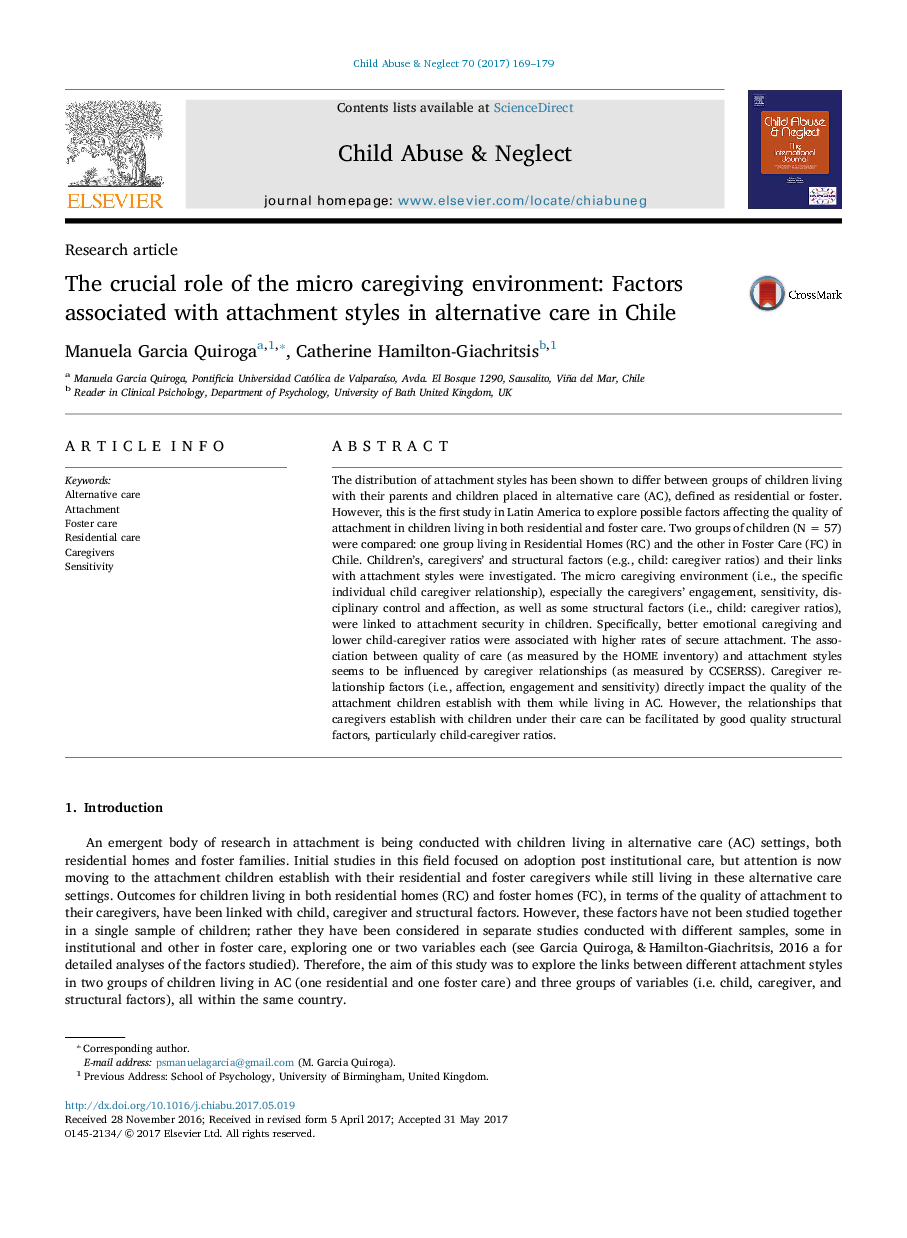ترجمه فارسی عنوان مقاله
نقش حیاتی محیط مراقبت میکرو مراقبت: عوامل مرتبط با سبک دلبستگی در مراقبت های جایگزین در شیلی
عنوان انگلیسی
The crucial role of the micro caregiving environment: Factors associated with attachment styles in alternative care in Chile
| کد مقاله | سال انتشار | تعداد صفحات مقاله انگلیسی |
|---|---|---|
| 155166 | 2017 | 11 صفحه PDF |
منبع

Publisher : Elsevier - Science Direct (الزویر - ساینس دایرکت)
Journal : Child Abuse & Neglect, Volume 70, August 2017, Pages 169-179
ترجمه کلمات کلیدی
مراقبت های جایگزین، ضمیمه، نگهداری فرزند، مراقبت مسکونی، نگهبانان، حساسیت،
کلمات کلیدی انگلیسی
Alternative care; Attachment; Foster care; Residential care; Caregivers; Sensitivity;

